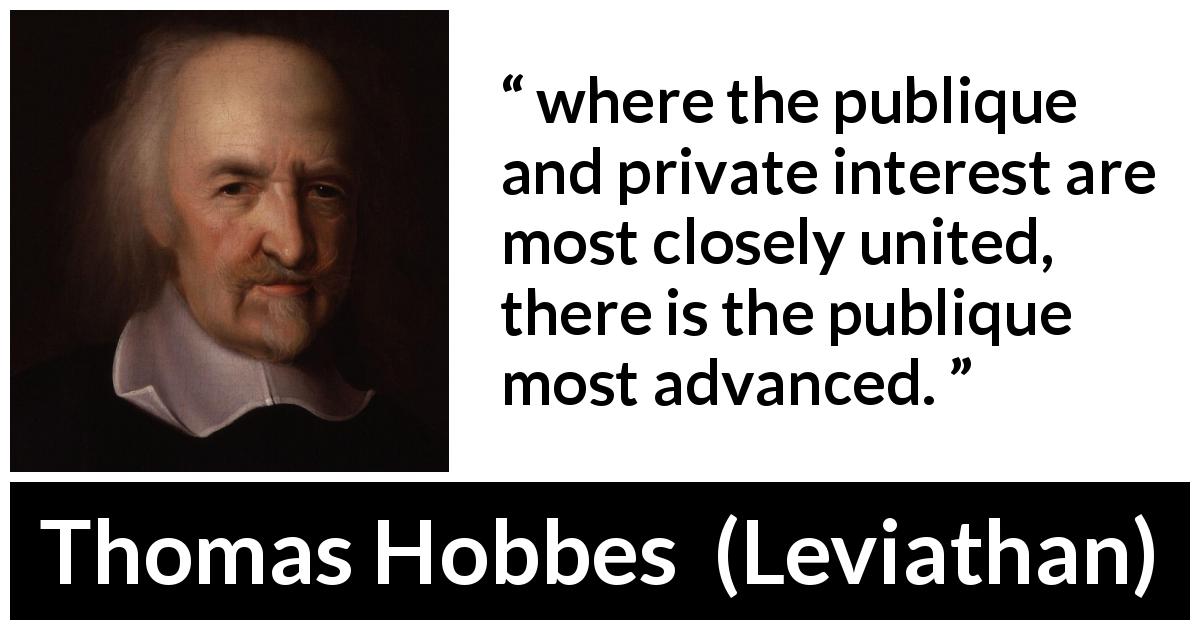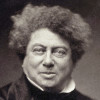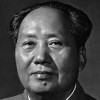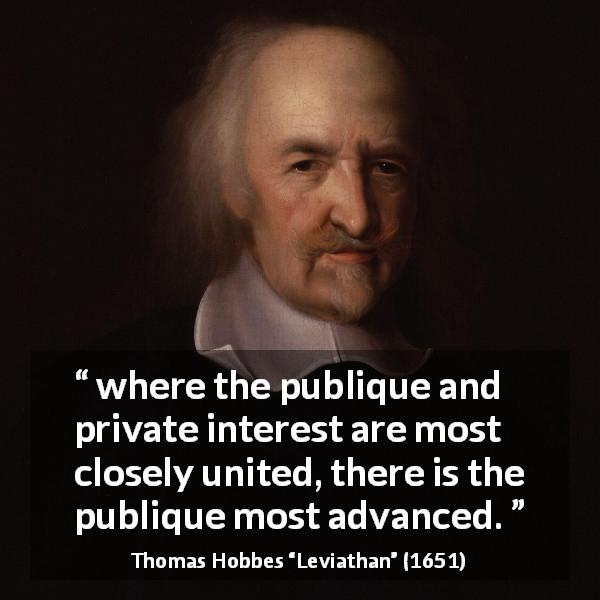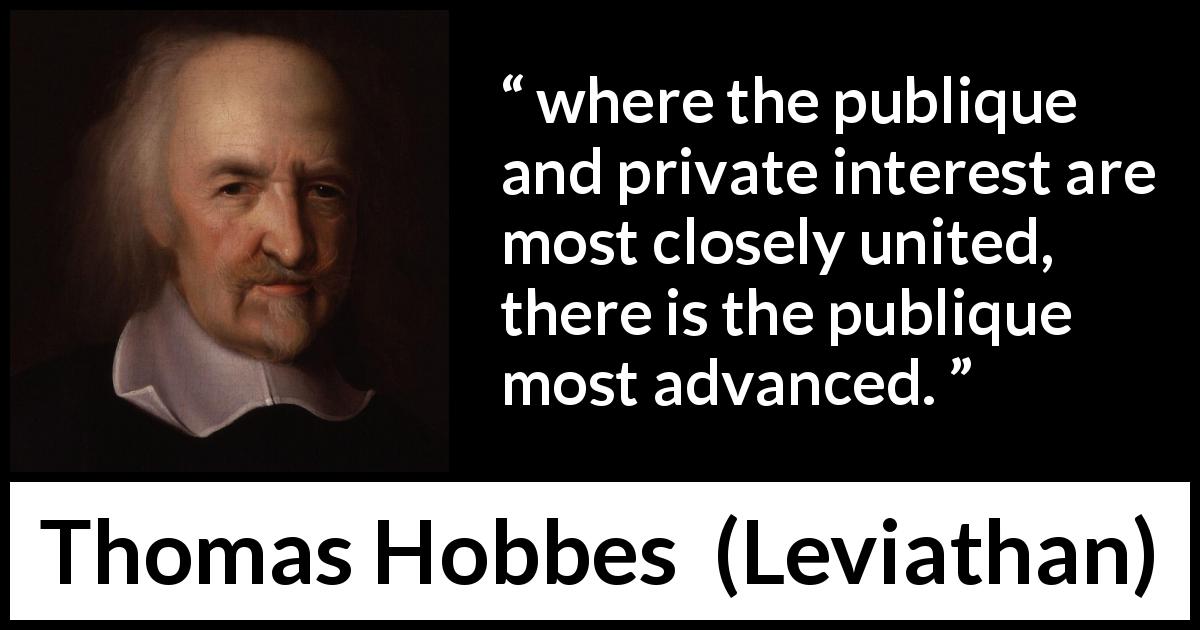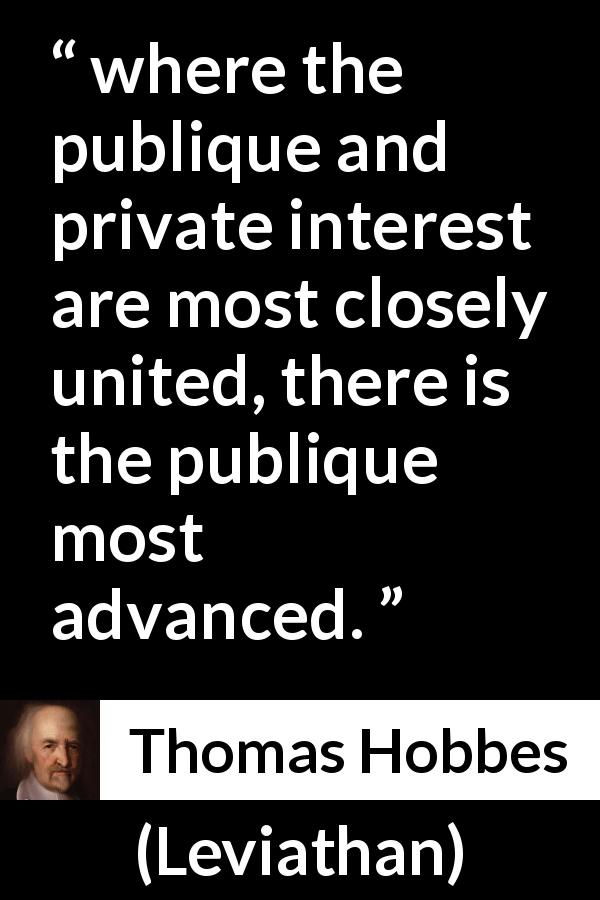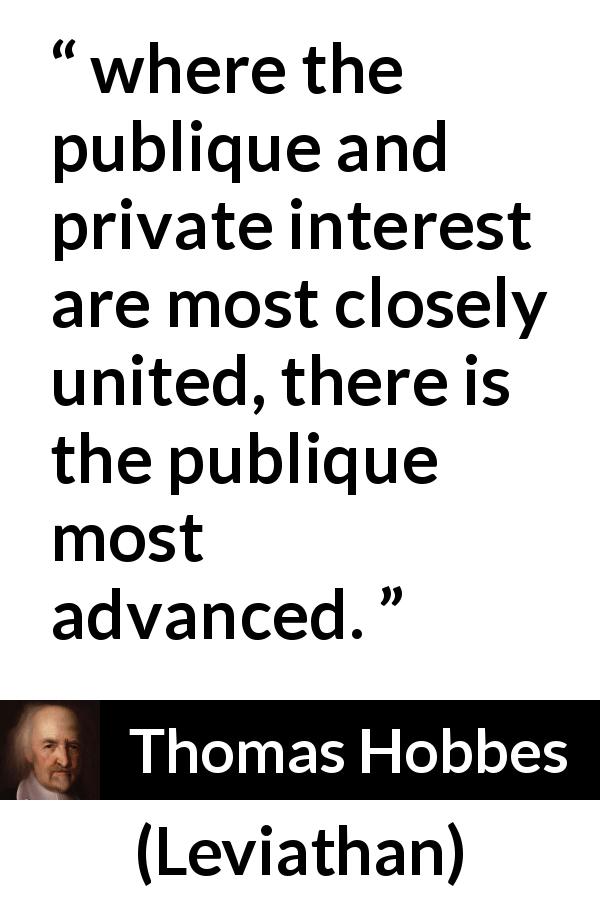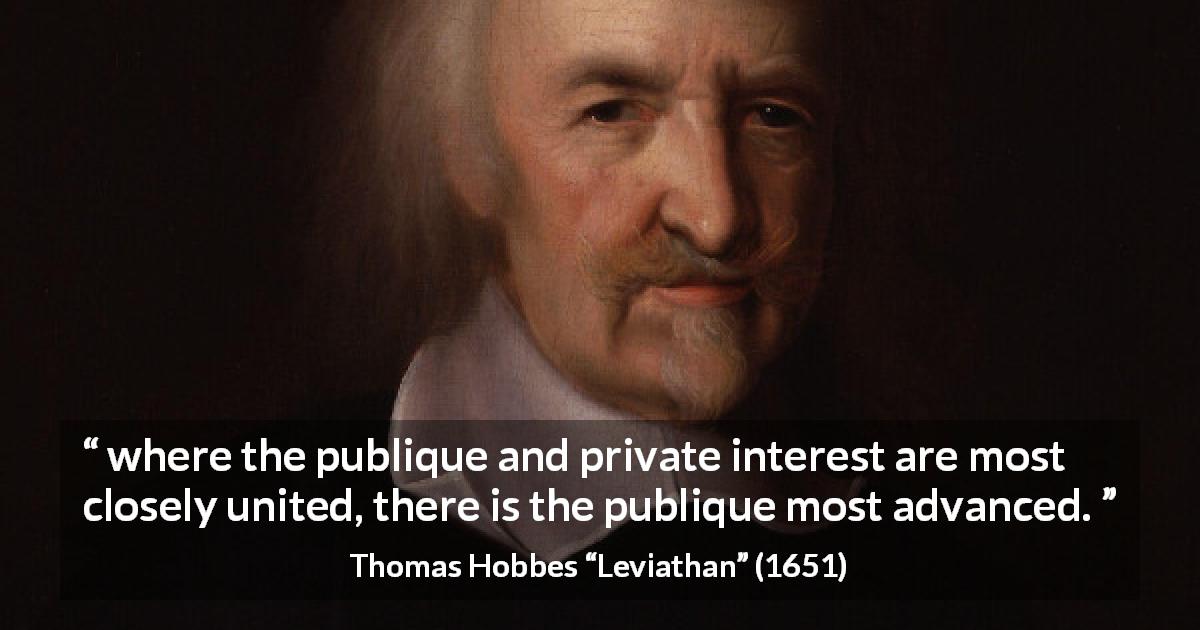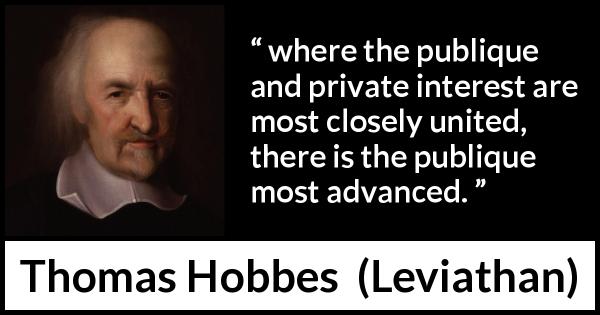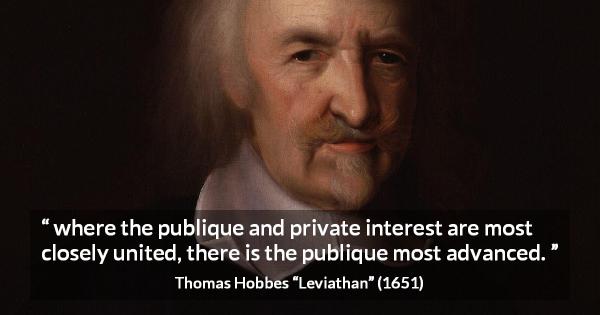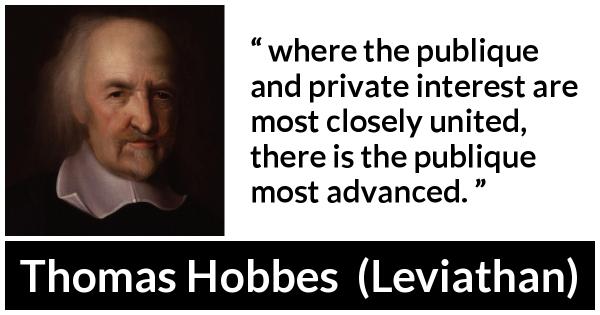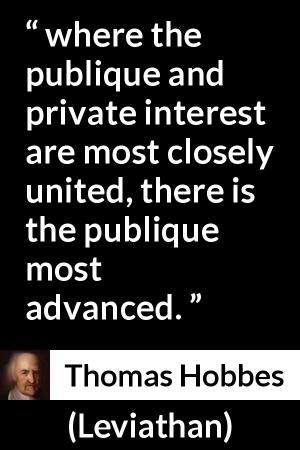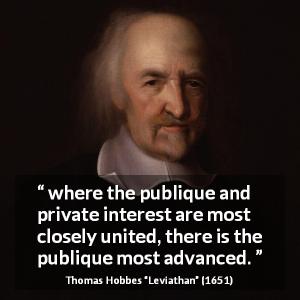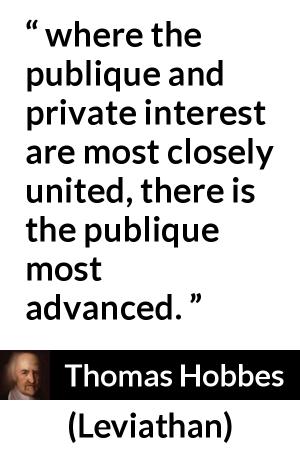“ where the publique and private interest are most closely united, there is the publique most advanced. ”
Thomas Hobbes, Leviathan (1651). copy citation
| Author | Thomas Hobbes |
|---|---|
| Source | Leviathan |
| Topic | business interest |
| Date | 1651 |
| Language | English |
| Reference | |
| Note | |
| Weblink | http://www.gutenberg.org/files/3207/3207-h/3207-h.htm |
Context
“And though he be carefull in his politique Person to procure the common interest; yet he is more, or no lesse carefull to procure the private good of himselfe, his family, kindred and friends; and for the most part, if the publique interest chance to crosse the private, he preferrs the private: for the Passions of men, are commonly more potent than their Reason. From whence it follows, that where the publique and private interest are most closely united, there is the publique most advanced. Now in Monarchy, the private interest is the same with the publique. The riches, power, and honour of a Monarch arise onely from the riches, strength and reputation of his Subjects. For no King can be rich, nor glorious, nor secure; whose Subjects are either poore, or contemptible, or too weak through want, or dissention, to maintain a war against their enemies: Whereas in a Democracy, or Aristocracy, the publique prosperity conferres not so much to the private fortune of one that is corrupt, or ambitious, as doth many times a perfidious advice, a treacherous action, or a Civill warre.”
source
